Arts & Entertainment
A gem loses its luster
Despite a magnificent star, ‘Lescaut’ needs some polishing
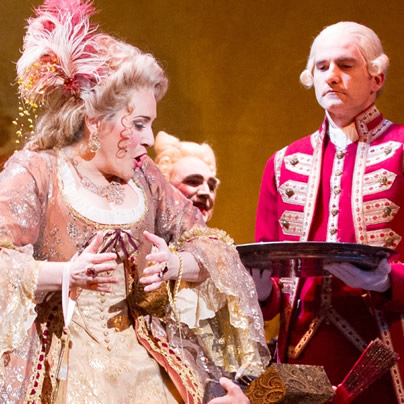
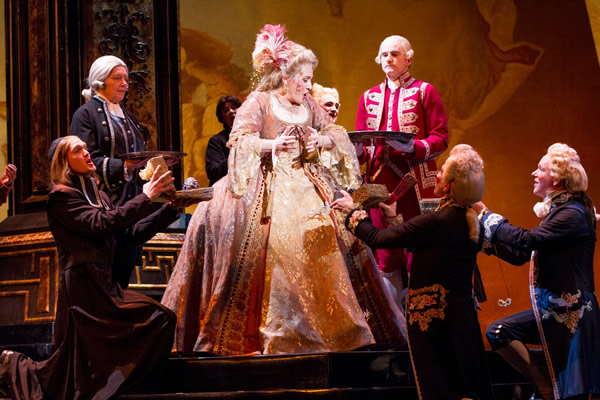
Patricia Racette makes her role debut in ‘Manon Lescaut’ for Washington National Opera. (Photo by Scott Suchman; courtesy of Washington National Opera)
‘Manon Lescaut’
Through March 23
Kennedy Center Opera House
2700 F St., NW
$25-$300
202-467-4600
kennedy-center.org
Opera can be an exquisite combination of art forms when done well — lush instrumentals combine with soaring vocals and engaging theatricality to create a passionate and transformative evening. That’s why the opening night of Washington National Opera’s “Manon Lescaut” was so teeth-grindingly frustrating. It polluted a sumptuous opera with high school-level missteps in directing, performance and conducting.
Rightfully lauded soprano Patricia Racette (a lesbian) made her role debut as Manon, and as expected she hit it out of the park. Her ability to convey pathos, both vocally and as an actress, lifted the character out of her two-dimensionality, suggesting a true conflict between Manon’s desire for real love and her gold-digging tendencies. At opera’s end, when Racette managed as she had throughout the evening to keep us spellbound by her vocal line and dramatic heft, the young girl’s demise became a heartbreaking cautionary tale about living for anything other than love.
Too bad, then, that this remarkable artist had to battle an orchestra run amok. Puccini’s score is rife with sweeping gestures of romantic tragedy and under the baton of Philippe Auguin, the orchestra certainly, but not always wisely, matched the mood. The players sounded so intoxicated with the score that, at times, they sawed away at it drunkenly, often drowning out the principles. The duet between Manon and her lover Des Grieux, Bulgarian tenor Kamen Chanev, leaned perilously close to becoming a shouting match.
Chanev was clearly hired for his money notes, the bread-and-butter of any tenor, and here he delivered in spades. His passionately ringing high note and legato in the act three aria, “No! Pazzo son! Guardate,” would crack the heart of the most hardened opera aficionado, yet, high notes only do not a good tenor make. Often employing vocal parlor tricks to cover a lack of dynamic subtlety, the large-voiced Chanev stumbled clumsily through much of Puccini’s lyric writing. (Perhaps he should have taken phrasing cues from Raúl Melo’s stylistically charming Edmondo.)
This “Manon Lescaut,” a revival of the 2007 production, was created and directed by gay opera director John Pascoe, who also helmed Washington National Opera’s “Don Giovanni,” seen earlier this season, and 2008’s dynamic “Lucrezia Borgia.”
Some brilliant and unexpected design choices — a large bust-topped pillar transformed into a human-sized jewel box for Manon and broken palace pieces as the heroine’s final resting place — highlighted the shallow artifice of 18th-century Paris juxtaposed with the lonely end we all crawl toward.
The grand desolation of Manon, who goes from dancing in the glittering salons of Paris to dying on a windswept plain in America, is one hair’s breadth away from melodrama, and some of Pascoe’s blocking and set choices only highlighted this unfortunate tendency. Using a large scrolled page as a screen for projecting quotes from the original Manon story written in the 17th-century by Abbé Prévost, this page regularly split in two, framing the stage and suggesting a grand fairy tale. At times, the halves would draw closer together, unnecessarily highlighting a lead character’s aria in a ham-handed attempt to let the audience know this moment was important — as if the writing and performance alone couldn’t do that.
Hackneyed operatic staging threatened to turn the piece into a silent film. Des Grieux and Manon often didn’t sing to each other at all in moments of high passion, and sometimes they weren’t even near one another. During her death scene, the heroine was draped languidly in a sepulchral broken pillar, only then to sing about being in her tomb. Yeah. We got that, already.
Perhaps in the relentless march to make opera easily accessible, the production team sacrificed the delicacy and infinite emotional variations that reflect real life. Manon’s story is not so absurd in an era when people will just as easily sell their soul for a shot on reality TV as they would sell out true love for a chance to wear jewel-encrusted gowns.

More than a dozen LGBTQ athletes won medals at the Milan Cortina Winter Olympics that ended on Sunday.
Cayla Barnes, Hilary Knight, and Alex Carpenter are LGBTQ members of the U.S. women’s hockey team that won a gold medal after they defeated Canada in overtime. Knight the day before the Feb. 19 match proposed to her girlfriend, Brittany Bowe, an Olympic speed skater.
French ice dancer Guillaume Cizeron, who is gay, and his partner Laurence Fournier Beaudry won gold. American alpine skier Breezy Johnson, who is bisexual, won gold in the women’s downhill. Amber Glenn, who identifies as bisexual and pansexual, was part of the American figure skating team that won gold in the team event.
Swiss freestyle skier Mathilde Gremaud, who is in a relationship with Vali Höll, an Austrian mountain biker, won gold in women’s freeski slopestyle.
Bruce Mouat, who is the captain of the British curling team that won a silver medal, is gay. Six members of the Canadian women’s hockey team — Emily Clark, Erin Ambrose, Emerance Maschmeyer, Brianne Jenner, Laura Stacey, and Marie-Philip Poulin — that won silver are LGBTQ.
Swedish freestyle skier Sandra Naeslund, who is a lesbian, won a bronze medal in ski cross.
Belgian speed skater Tineke den Dulk, who is bisexual, was part of her country’s mixed 2000-meter relay that won bronze. Canadian ice dancer Paul Poirier, who is gay, and his partner, Piper Gilles, won bronze.
Laura Zimmermann, who is queer, is a member of the Swiss women’s hockey team that won bronze when they defeated Sweden.
Outsports.com notes all of the LGBTQ Olympians who competed at the games and who medaled.
Theater
José Zayas brings ‘The House of Bernarda Alba’ to GALA Hispanic Theatre
Gay Spanish playwright Federico García Lorca wrote masterpiece before 1936 execution

‘The House of Bernarda Alba’
Through March 1
GALA Hispanic Theatre
3333 14th St., N.W.
$27-$52
Galatheatre.org
In Federico García Lorca’s “The House of Bernarda Alba,” now at GALA Hispanic Theatre in Columbia Heights, an impossibly oppressive domestic situation serves, in short, as an allegory for the repressive, patriarchal, and fascist atmosphere of 1930s Spain
The gay playwright completed his final and arguably best work in 1936, just months before he was executed by a right-wing firing squad. “Bernarda Alba” is set in the same year, sometime during a hot summer in rural Andalusia, the heart of “España profunda” (the deep Spain), where traditions are deeply rooted and mores seldom challenged.
At Bernarda’s house, the atmosphere, already stifling, is about to get worse.
On the day of her second husband’s funeral, Bernarda Alba (superbly played by Luz Nicolás), a sixtyish woman accustomed to calling the shots, gathers her five unmarried daughters (ages ranging from 20 to 39) and matter-of-factly explain what’s to happen next.
She says, “Through the eight years of mourning not a breeze shall enter this house. Consider the doors and windows as sealed with bricks. That’s how it was in my father’s house and my grandfather’s. Meanwhile, you can embroider your trousseaux.”
It’s not an altogether sunny plan. While Angustias (María del Mar Rodríguez), Bernarda’s daughter from her first marriage and heiress to a fortune, is betrothed to a much younger catch, Pepe el Romano, who never appears on stage, the remaining four stand little chance of finding suitable matches. Not only are they dowry-less, but no men, eligible or otherwise, are admitted into their mother’s house.
Lorca is a literary hero known for his mastery of both lyrical poetry and visceral drama; still, “Bernarda Alba’s” plotline might suit a telenovela. Despotic mother heads a house of adult daughters. Said daughters are churning with passions and jealousies. When sneaky Martirio (Giselle Gonzáles) steals the photo of Angustias’s fiancé all heck kicks off. Lots of infighting and high drama ensue. There’s even a batty grandmother (Alicia Kaplan) in the wings for bleak comic relief.
At GALA, the modern classic is lovingly staged by José Zayas. The New York-based out director has assembled a committed cast and creative team who’ve manifested an extraordinarily timely 90-minute production performed in Spanish with English subtitles easily ready seen on multiple screens.
In Lorca’s stage directions, he describes the set as an inner room in Bernarda’s house; it’s bright white with thick walls. At GALA, scenic designer Grisele Gonzáles continues the one-color theme with bright red walls and floor and closed doors. There are no props.
In the airless room, women sit on straight back chairs sewing. They think of men, still. Two are fixated on their oldest siter’s hunky betrothed. Only Magdelena (Anna Malavé), the one sister who truly mourns their dead father, has given up on marriage entirely.
The severity of the place is alleviated by men’s distant voices, Koki Lortkipanidze’s original music, movement (stir crazy sisters scratching walls), and even a precisely executed beatdown choreographed by Lorraine Ressegger-Slone.
In a short yet telling scene, Bernarda’s youngest daughter Adela (María Coral) proves she will serve as the rebellion to Bernarda’s dictatorship. Reluctant to mourn, Adela admires her reflection. She has traded her black togs for a seafoam green party dress. It’s a dreamily lit moment (compliments of lighting designer Hailey Laroe.)
But there’s no mistaking who’s in charge. Dressed in unflattering widow weeds, her face locked in a disapproving sneer, Bernarda rules with an iron fist; and despite ramrod posture, she uses a cane (though mostly as a weapon during one of her frequent rages.)
Bernarda’s countenance softens only when sharing a bit of gossip with Poncia, her longtime servant convincingly played by Evelyn Rosario Vega.
Nicolás has appeared in “Bernarda Alba” before, first as daughter Martirio in Madrid, and recently as the mother in an English language production at Carnegie Melon University in Pittsburgh. And now in D.C. where her Bernarda is dictatorial, prone to violence, and scarily pro-patriarchy.
Words and phrases echo throughout Lorca’s play, all likely to signal a tightening oppression: “mourning,” “my house,” “honor,” and finally “silence.”
As a queer artist sympathetic to left wing causes, Lorca knew of what he wrote. He understood the provinces, the dangers of tyranny, and the dimming of democracy. Early in Spain’s Civil War, Lorca was dragged to the the woods and murdered by Franco’s thugs. Presumably buried in a mass grave, his remains have never been found.
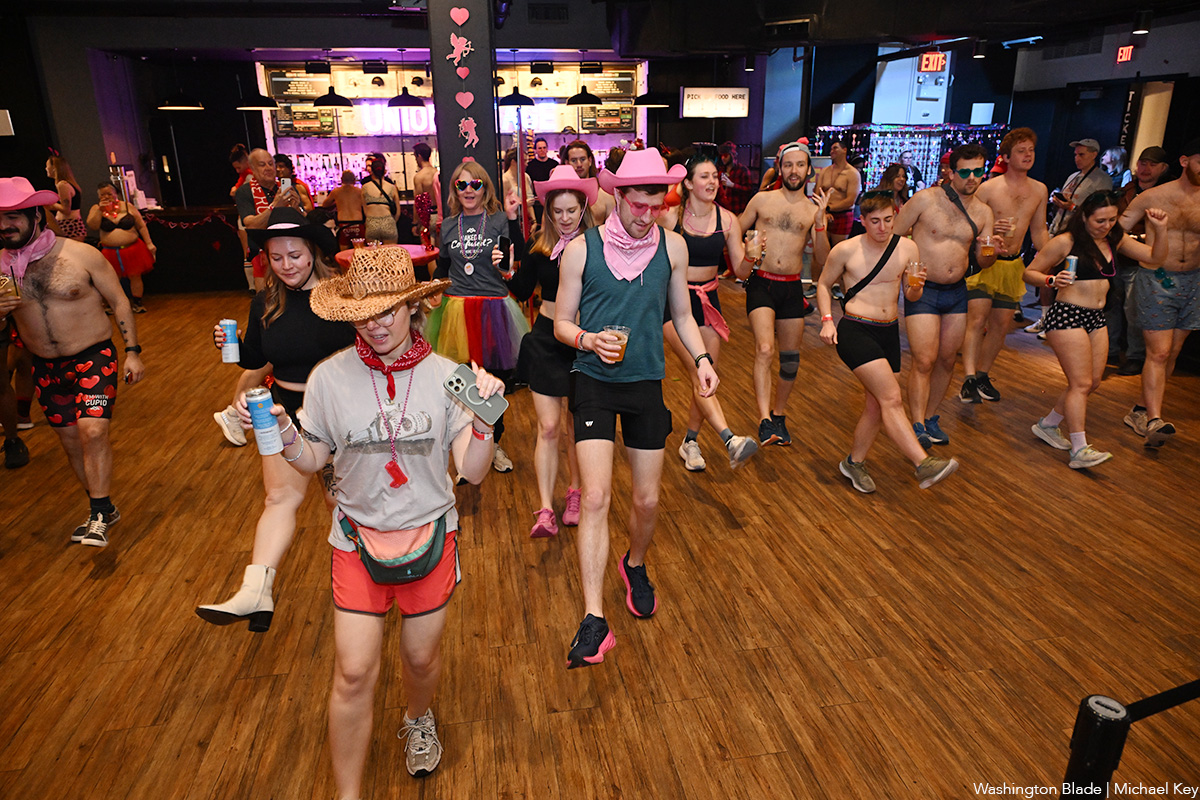
Cupid’s Undie Run, an annual fundraiser for neurofibromatosis (NF) research, was held at Union Stage and at The Wharf DC on Saturday, Feb. 21.
(Washington Blade photos by Michael Key)
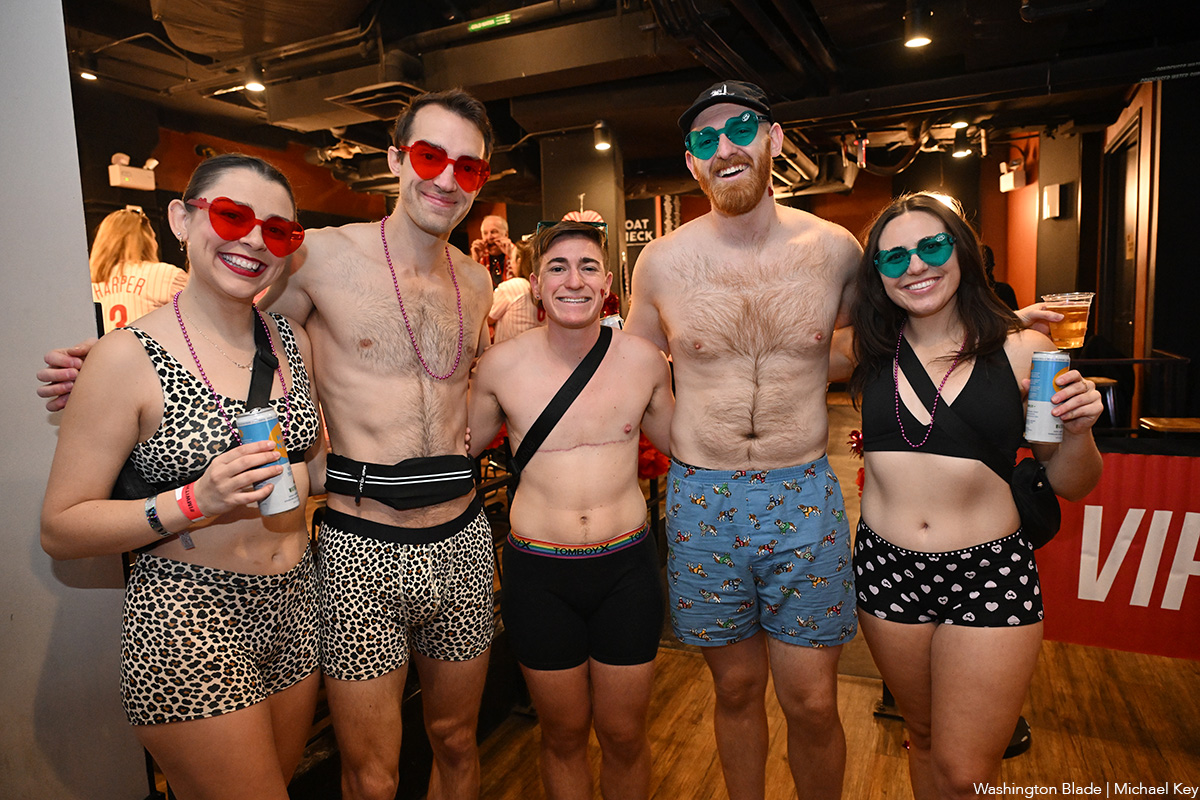
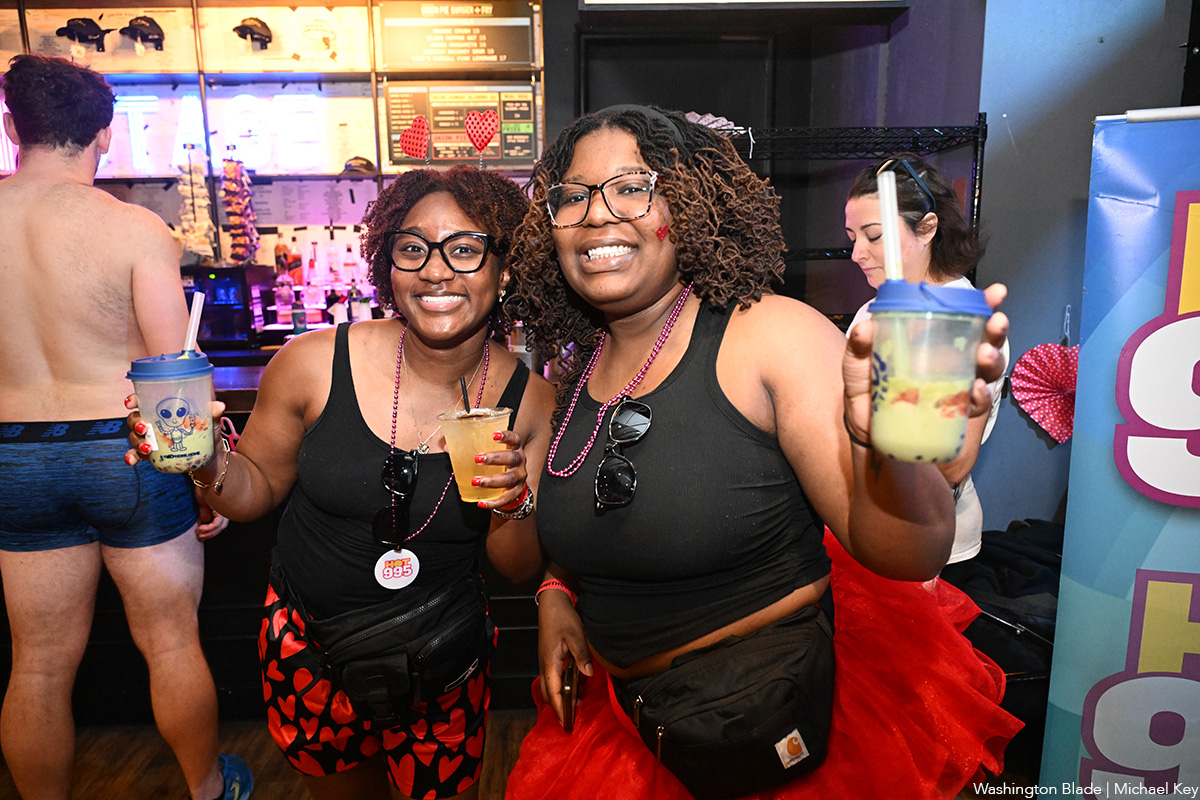
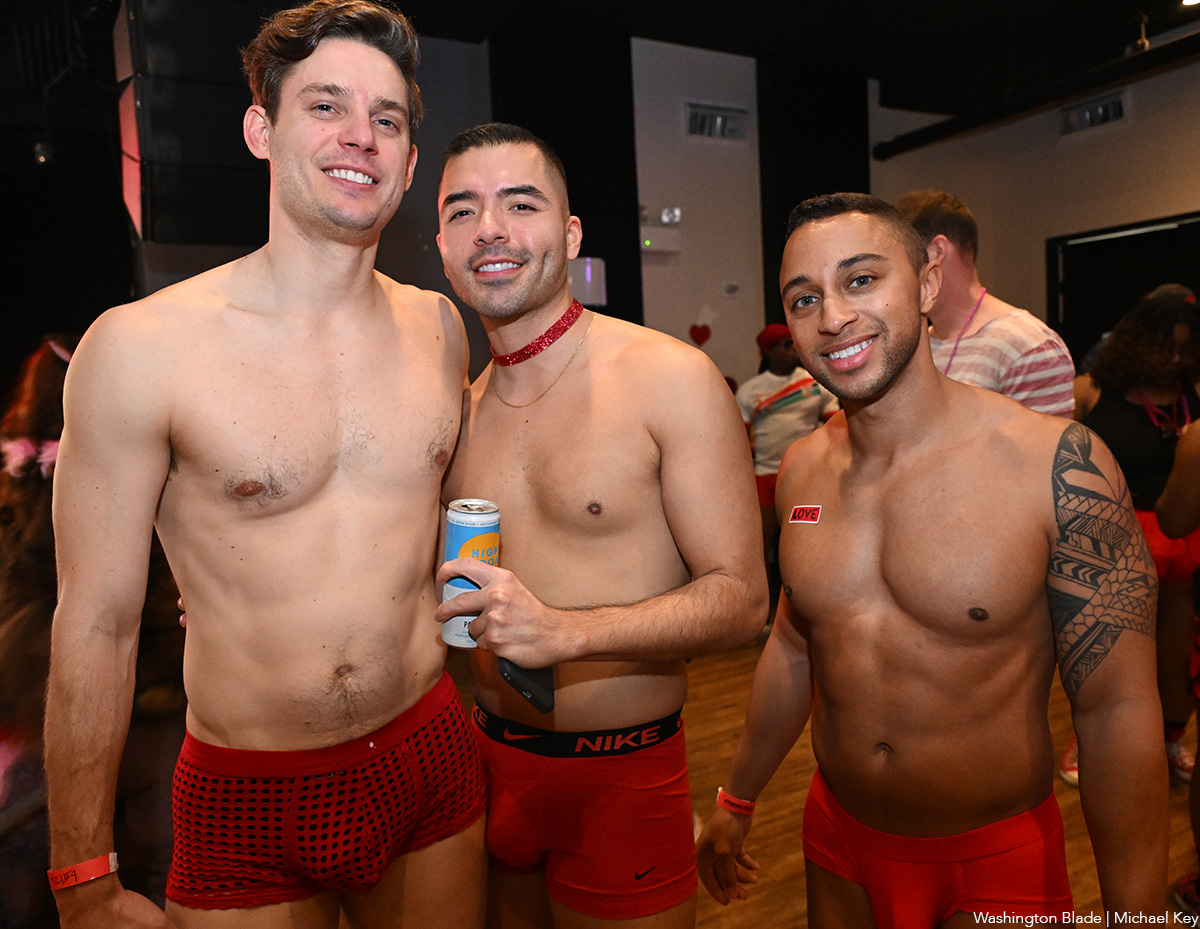
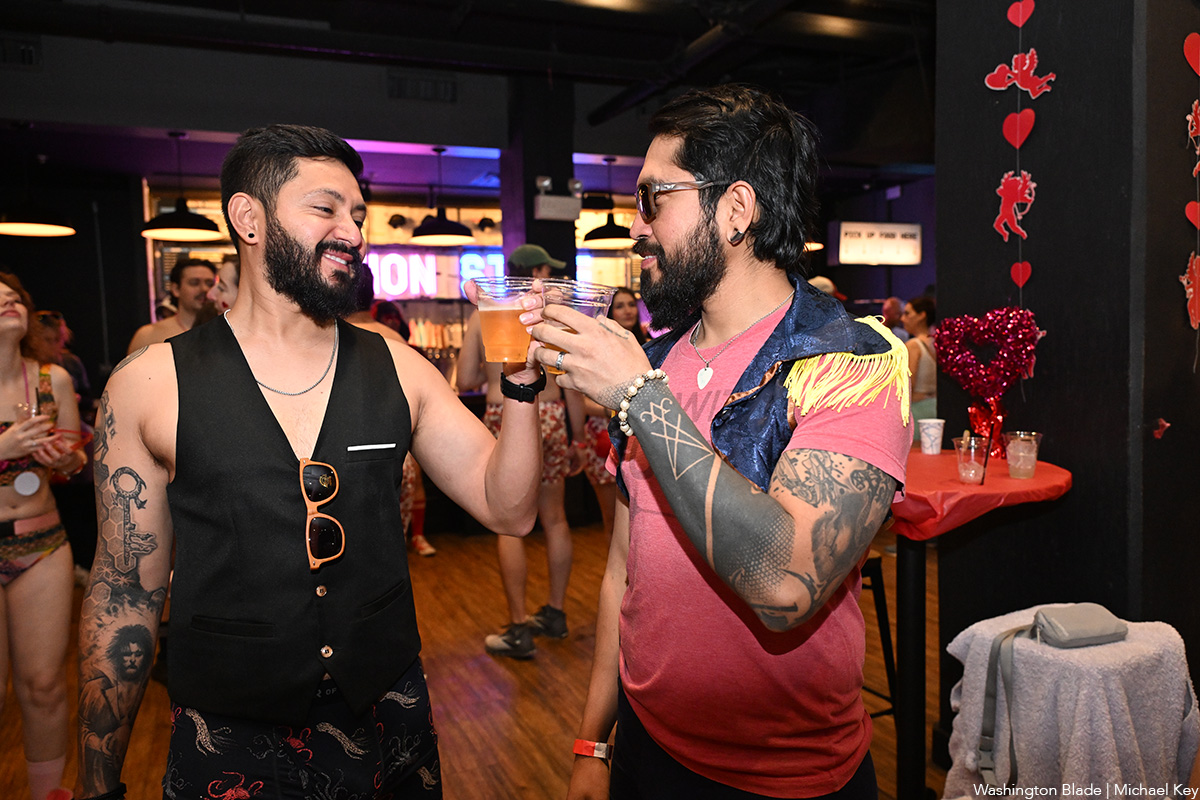
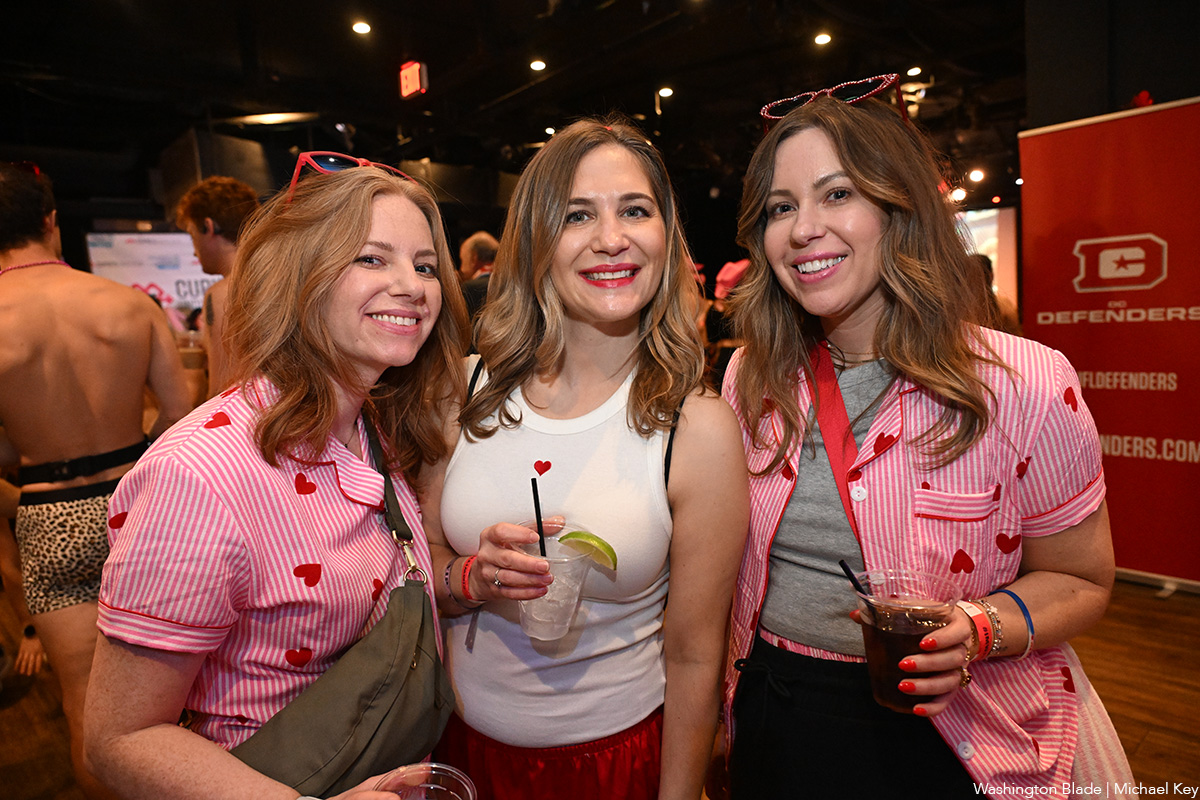
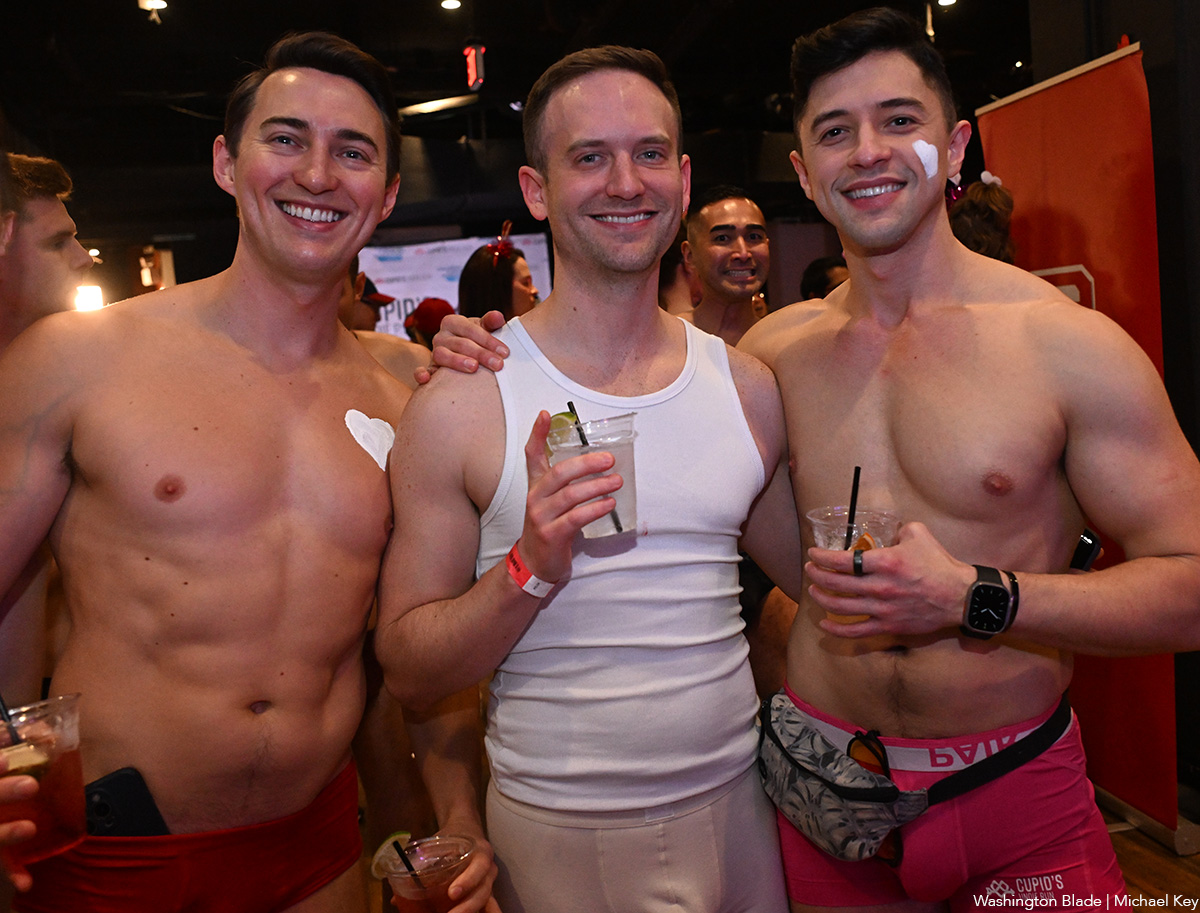
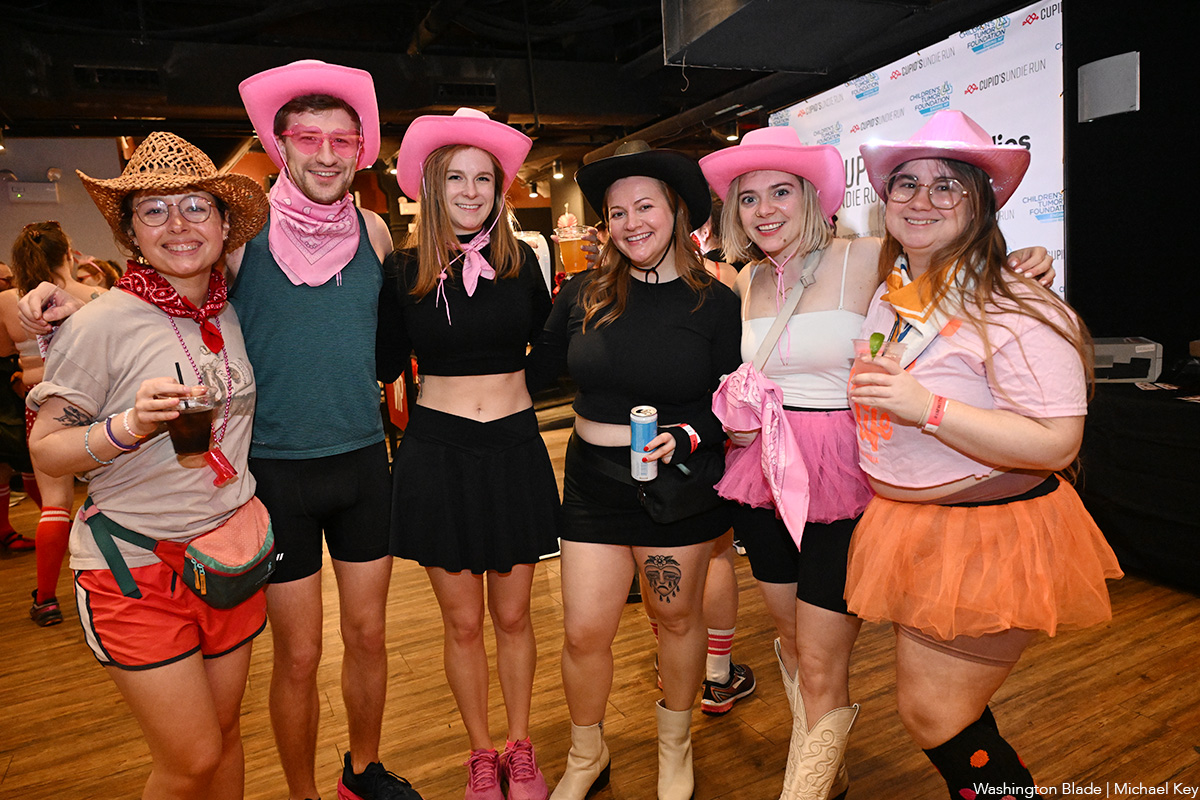
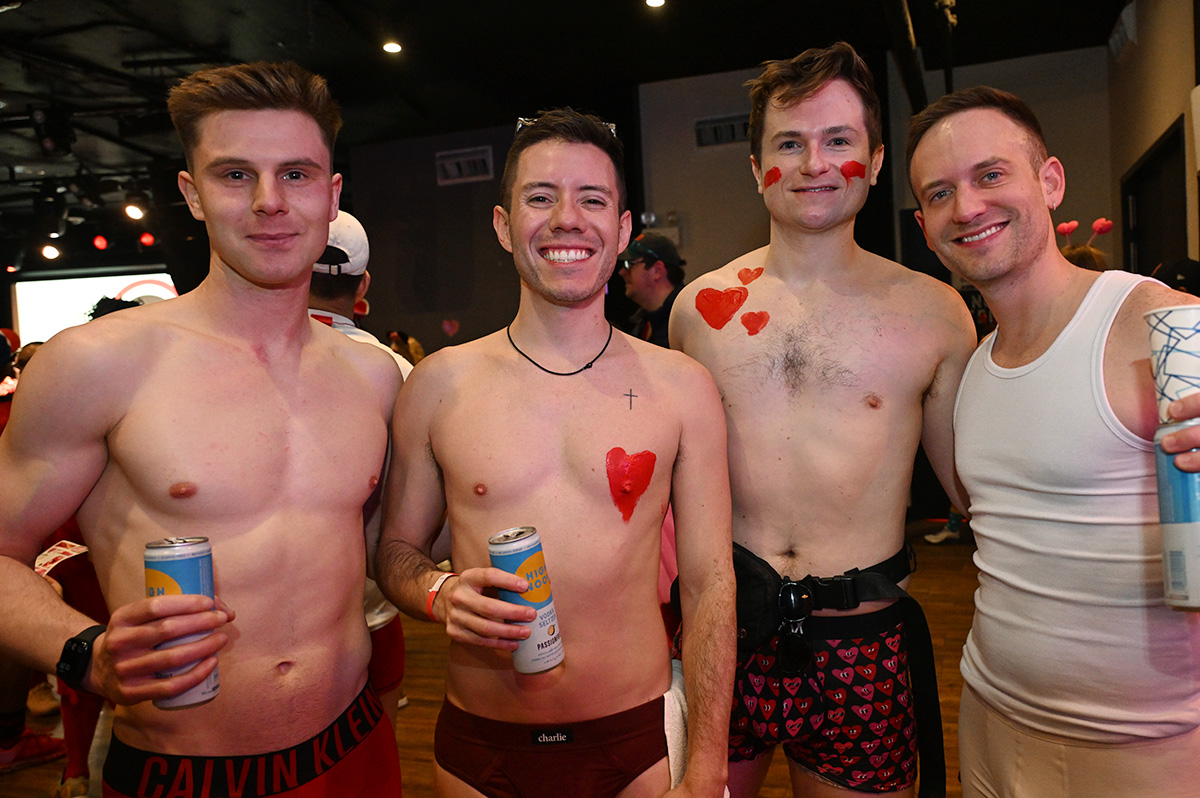
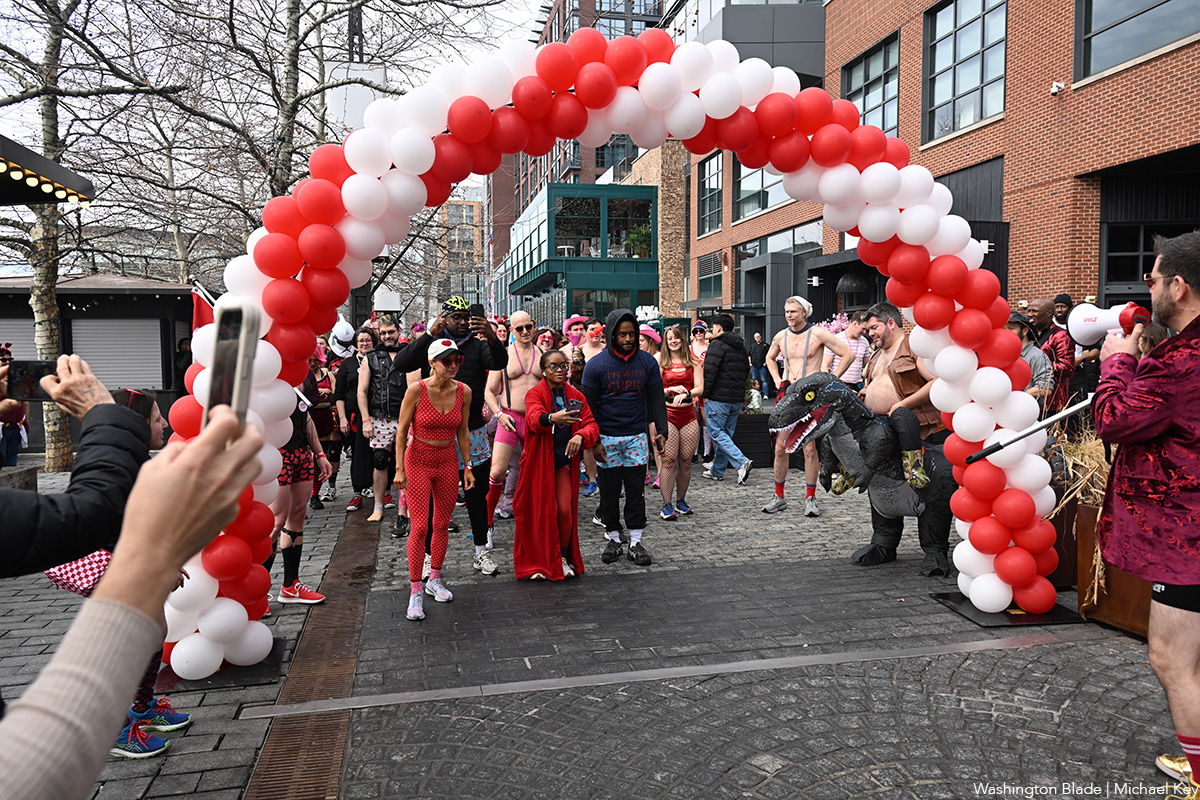
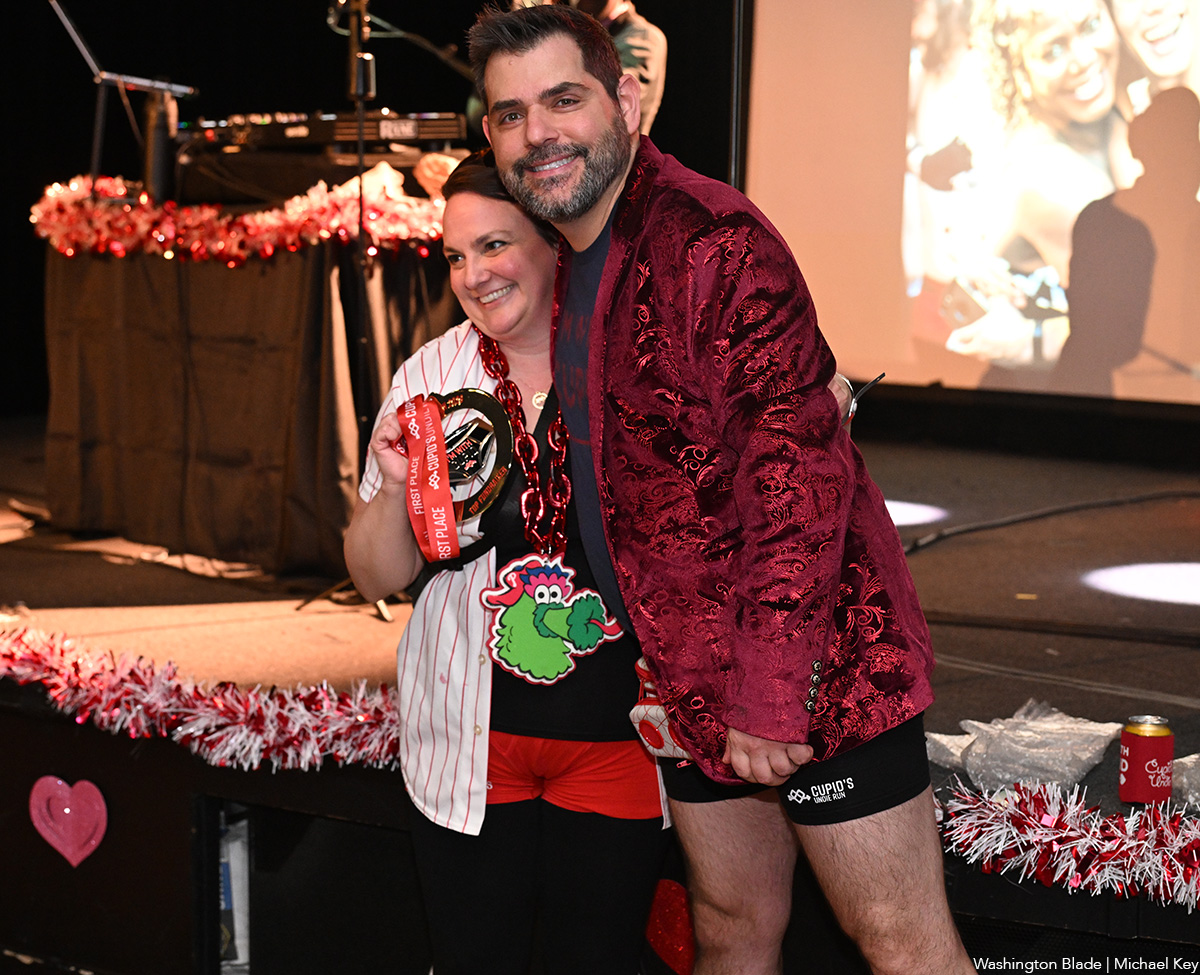
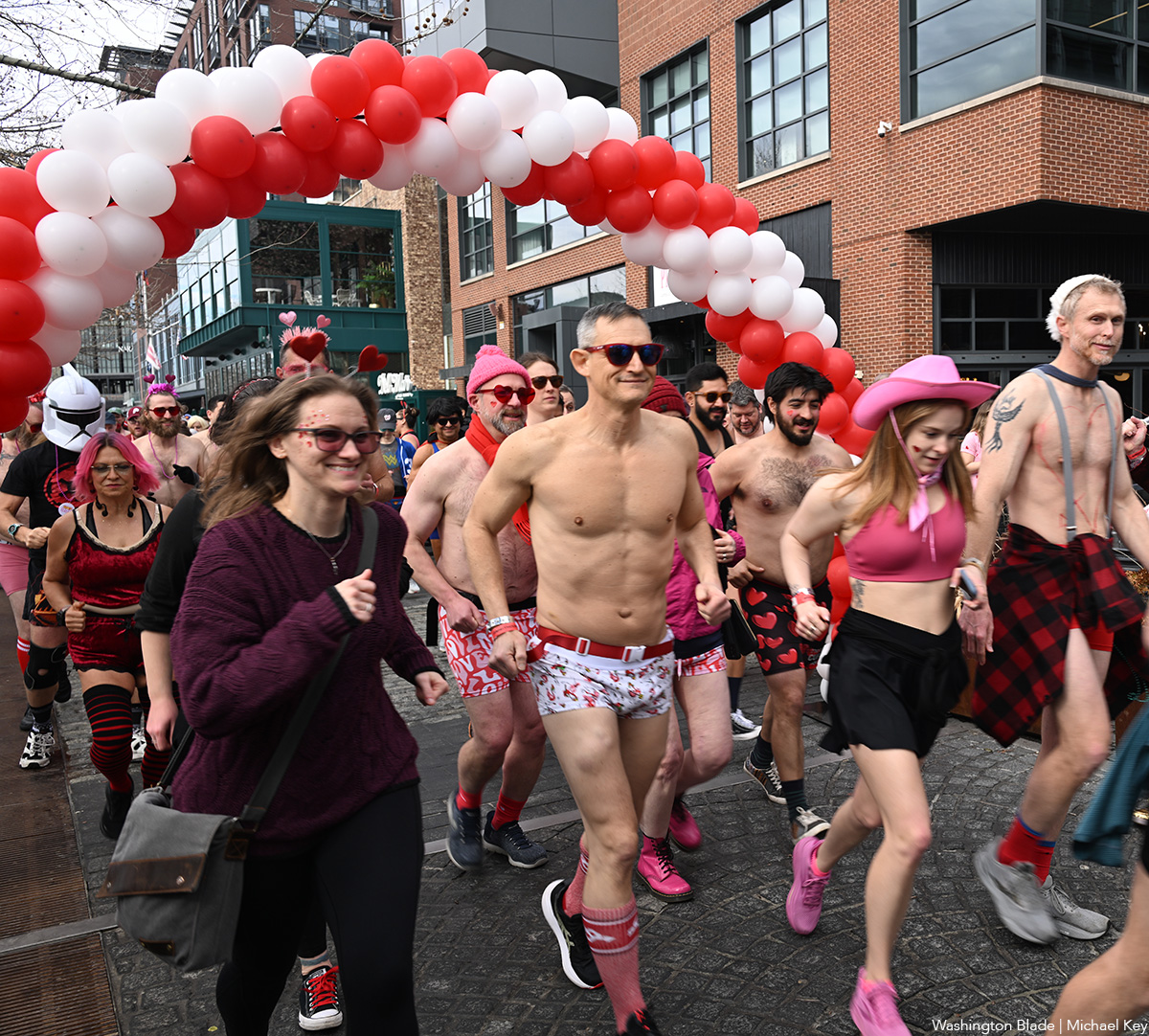
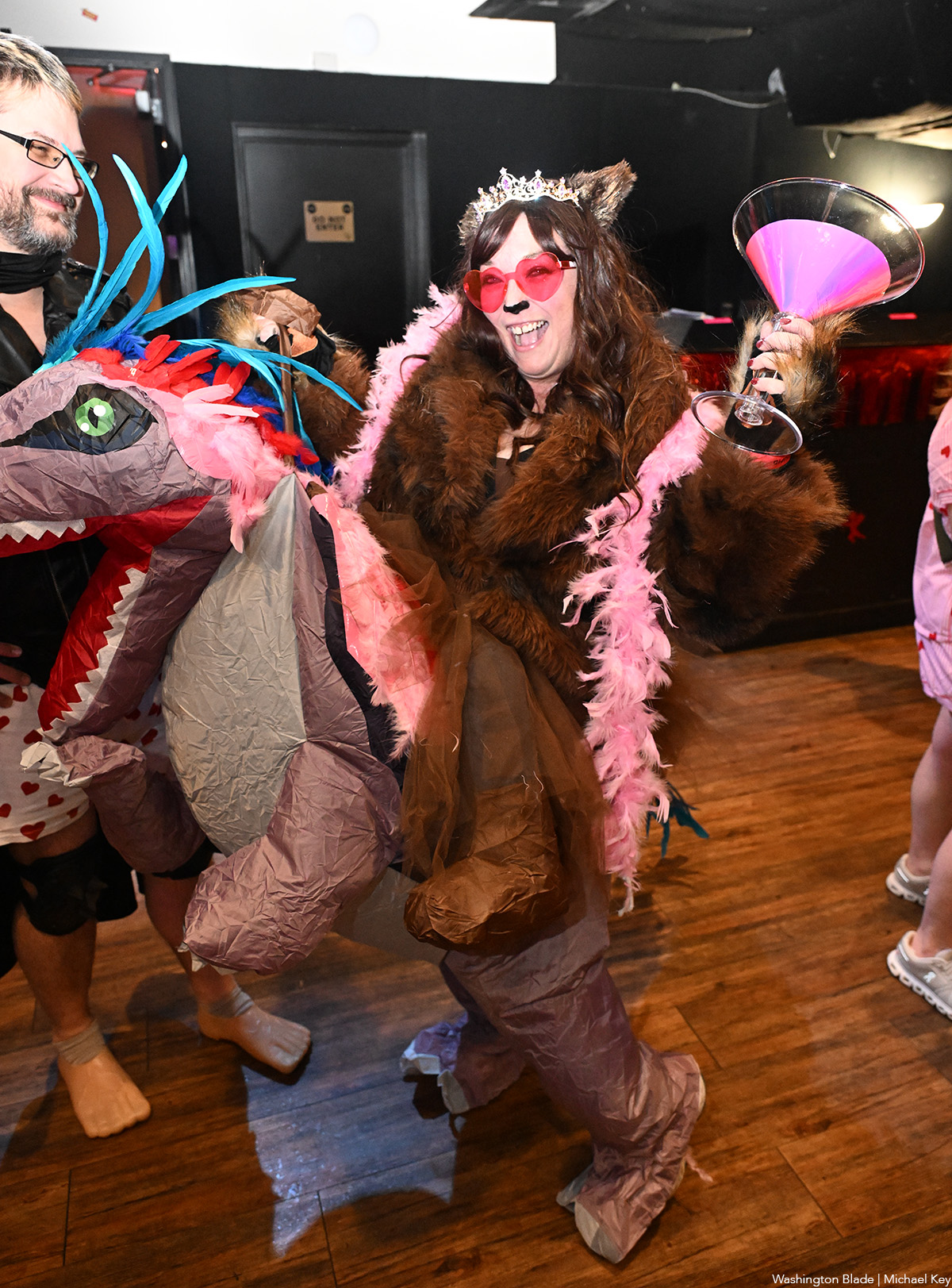
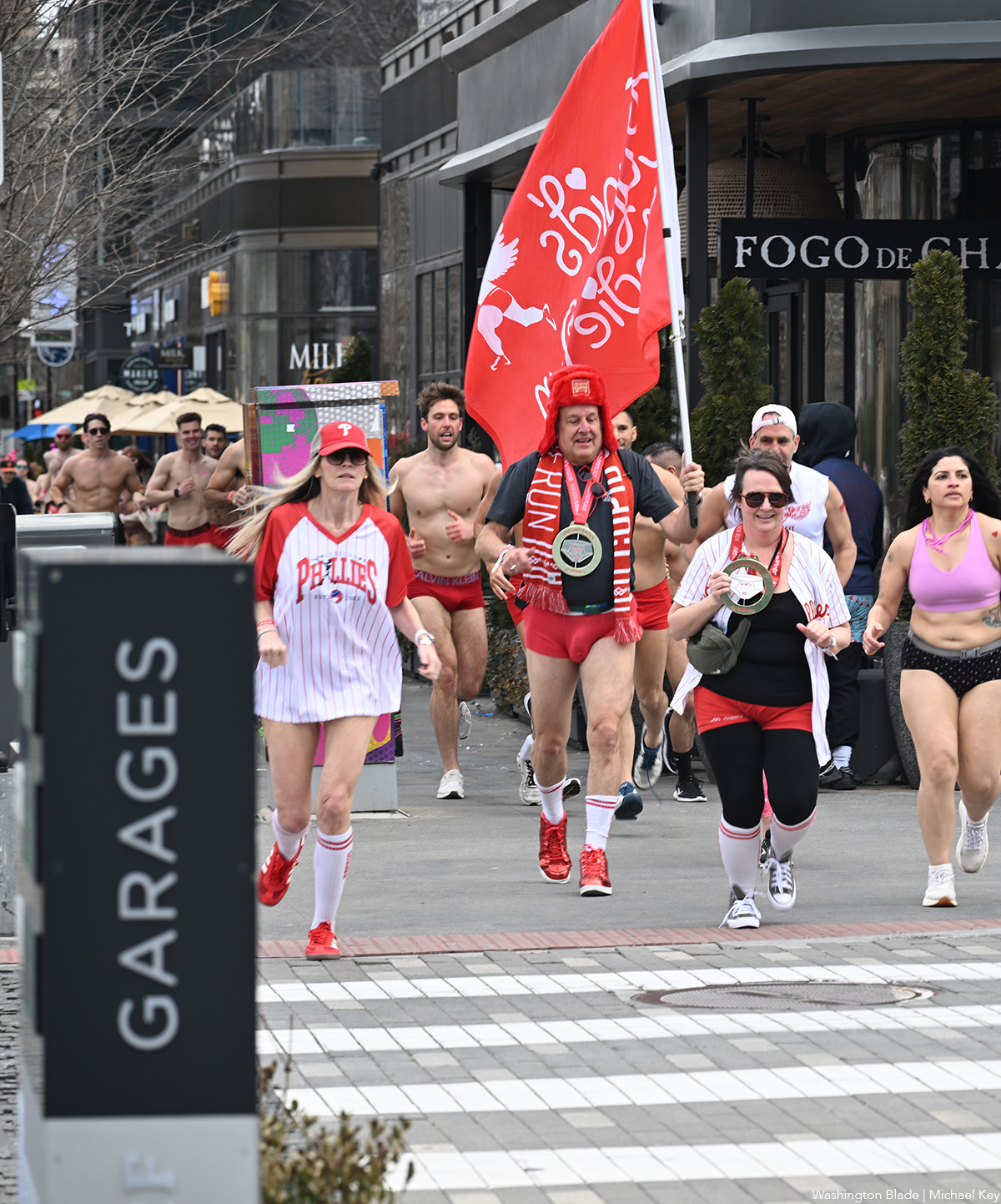
-

 Movies5 days ago
Movies5 days agoRadical reframing highlights the ‘Wuthering’ highs and lows of a classic
-

 District of Columbia4 days ago
District of Columbia4 days agoJudge rescinds order against activist in Capital Pride lawsuit
-

 District of Columbia4 days ago
District of Columbia4 days agoTrans activists arrested outside HHS headquarters in D.C.
-

 Ecuador5 days ago
Ecuador5 days agoJusticia reconoce delito de odio en caso de bullying en Instituto Nacional Mejía de Ecuador




















